- Home
- Linwood Barclay
A Tap on the Window Page 5
A Tap on the Window Read online
Page 5
“You gonna sign it or what?” the kid behind the counter asked, bringing me back to the present.
I saw a signature I recognized. “Donna Weaver.” I studied it a moment, even ran my finger along the page where my wife had taken this pen and signed her name.
“No need,” I said.
“You know what I think?” the kid asked.
“Tell me.”
“I think the cops are collecting these, and checking the names and the addresses, and figuring out which people who live here have signed and which ones haven’t.”
“You don’t say.”
He nodded wisely. “Oh yeah. That’s how they work.”
“So I guess you’ve signed it, too? Just to be safe?”
He grinned and shook his head. “Manager told me to, and watched me when I did it. But I wrote down ‘Dougie Douche.’ No way I’d ever sign something supporting these clowns.”
“You’re not a fan?”
“You ever had someone spray paint down your throat?”
“Excuse me?”
“I wasn’t even the one doing the tagging. It was my friend, but he took off, leaving me with the spray cans, when the local cops showed up. One of them decided to do some graffiti in my throat.”
“That could have killed you,” I said.
“Yeah, well, she just did a couple quick shots. Lost my breath for a few seconds. My teeth and lips were yellow.”
“She?”
Someone else came in to pay for gas. The kid grabbed the clipboard, told me to have a nice day, and turned his attention to the new customer.
* * *
I got back in the Honda, drank half the bottle of water, then put the car in drive.
It was only three or four minutes to home from there, but the pulsing in my temples and above my eyes was already starting to fade when I turned down our street.
And then, just like that, the headache was back.
It probably had something to do with the fact that a Griffon police cruiser was parked across the end of our driveway.
I was thinking they’d find out pretty damn fast that I hadn’t signed the petition.
SIX
It was almost five.
Donna usually got home around four thirty from her job at Griffon Police Service. They changed the name on the building a few years back. No longer was it the Griffon Police Force. That sounded a bit too, well, forceful. Too close to the truth, actually. So they changed it to “Service,” which made it sound more like they were gun-toting caterers. The powers that be must have decided that if they sounded gentler, they’d somehow be perceived that way.
Didn’t happen.
And while Donna did work there, she didn’t carry a gun, or ride in a cruiser, or work weekends and nights. She went in Monday to Friday, nine to four, got all the statutory holidays off, and didn’t have to wear a uniform. That’s because she wasn’t a cop. She worked in payroll and admin, making sure everyone’s monthly paychecks got deposited to the financial institution of their choice, sorted out overtime disputes, and remembered to pay the department’s bills so that when a Griffon resident dialed 911, somebody answered.
So it was possible that a Griffon cruiser parked in front of our house was not a cause for worry the way it might be for anyone else. Donna knew every member of the force, if not personally, at least by name and Social Security number. She had been known, on occasion, to bring in baked goods and share them with anyone who walked past her desk. An officer could have been dropping by to return the favor. Donna and one of the town’s two female police officers—Kate Ramsey—sometimes went to the movies together, although not lately. Neither Donna nor I had been particularly social with anyone lately.
But still, I didn’t have a good feeling about this.
Only half a block from home, my cell, sitting on the seat next to me, rang. I glanced down and saw the word . Used to be, Donna called me at least a couple of times during the day. Usually nothing important. Just calling to chat. She’d know there was a good chance I wouldn’t answer, but that it was still safe to try, since I’d have my phone muted if I was someplace where I didn’t want to make my presence known.
I snatched up the phone.
“Yeah,” I said.
“The police are here,” she said.
“I’m just coming down the street,” I said. “I thought maybe it was Kate.”
“No. It’s Haines and Brindle.”
“Haines,” I said solemnly. One of the younger cops on the force, although he still had more than a decade in. He’d been the one who came to us with the news, in August. “I don’t know Brindle.”
“You’re in for a treat, then,” she said.
“What’s going on?”
“They’re not saying. They want to talk to you. At first I thought maybe they’d found out who sold him the drugs, had come to tell us.” Donna could draw pictures of Scott all day, but it was hard for her to write his name out, or say it aloud. “But I think they’d have been willing to talk to me about that.”
I’d have been surprised to learn that tracking down who provided Scott with ecstasy was still a priority for the Griffon Police Service, if it ever was. Not that the cops around here weren’t concerned about keeping the peace. They just went about it differently. If they thought you were a drug dealer, particularly one from out of town, they took you out back of a Griffon snowplow shed, beat the living shit out of you, then gave you a lift down to Niagara Falls and dropped you off in front of some abandoned industry on Buffalo Avenue.
There’d long been stories about excessive force around here, which explained Scott’s take on that officer patting down the girl behind Patchett’s. He’d said there was no reason for it, but for all I knew, the officer had a legitimate suspicion she was up to something. I’d learned long ago, during my stint with a police department, that when you gave someone—male or female—the benefit of the doubt, you reduced the odds that you’d be going home at the end of your shift.
For the most part, no one around here was troubled by rumors of police overstepping their bounds. The citizens of Griffon felt safe in their homes. As long as that sense of security continued, they didn’t need to know the details.
When I was honest with myself, I had to admit that was my attitude, too. I knew that if and when I found the one who sold Scott XTC, X, E—whatever they were calling it on the street these days—I’d handle the matter myself.
“Talk to you later,” I told Donna, and ended the call. I pulled up alongside the police car, saw the two male officers inside. I pulled over to the curb ahead of the cruiser, got out, glanced at the house and saw Donna watching through the living room sheers.
Ricky Haines, the younger of the two, got out on the passenger side and nodded. Early thirties, black hair and moustache, all neatly trimmed. In shape, too. He had the look of someone who might have played football at some point, although he was a little shy of the necessary bulk. Hockey, maybe, although bulk had its pluses there, too.
“Mr. Weaver,” he said, touching his index finger to his forehead in a mini salute.
“Officer Haines.”
“Good memory,” he said.
It’s hard to forget the name of the man who told you your son was dead.
The other door opened. This cop looked to be in his late thirties, and if he’d ever played a sport, he’d long since given it up. I was guessing he weighed two-eighty, and he was carrying a good chunk of it around the middle. There was more hair above his lip than on his head.
“This is Officer Hank Brindle,” Haines said.
I nodded. “Hey.”
“So you’re Donna’s husband,” he said. His voice was low and gravelly.
“That’s right.”
He nodded, thought about that for a second, then said, “Wonder if you might be able to help us out with something.”
“I’ll give it a try.”
Brindle pointed to my Honda Accord. “This car’s registered to you?”
“Yes.”
“Were you driving around in this vehicle last night?” Brindle asked.
“Yes.”
“Can you tell us where you were?”
“It would depend on the time,” I said.
“Say around ten.”
“I was on my way home.”
Brindle nodded. “On your way home from where?”
“I’d been doing some work in Tonawanda.”
Brindle’s head kept nodding. “Ricky here tells me you’re a private investigator. That right?”
I nodded, waiting. I could’ve asked what this was about, but cops had a way of getting to things in their own sweet time, and didn’t like to answer questions. I knew the drill.
Brindle nodded thoughtfully again, then glanced over at his younger partner. “I guess I’ll let you take it from here. You’re more up to speed on this.” I thought I heard a hint of resentment.
I turned my attention to Haines. “Up to speed on what?”
“We’re looking for a girl,” Haines said. “A teenager.”
I waited.
“Her name’s Claire Sanders. Seventeen. Blond hair, about five five. Hundred and fifteen pounds or so.”
“Why you looking for her? She done something?”
“It’s important that we find her,” Haines said, sidestepping the question.
I persisted. “Because she’s done something, or because she’s missing?”
Haines cleared his throat. “She’s unaccounted for. We’d be grateful for your cooperation here, Mr. Weaver. This is kind of an unofficial inquiry, to be honest. Considering who Claire’s father is, we’ve opted to handle this with discretion.”
I had to think a second. Claire Sanders? “This girl is Bertram Sanders’ daughter? She’s the mayor’s kid?”
“I can see why you’re a detective,” said Brindle.
“Our information,” Haines said, “suggests you may have encountered Claire last night.”
“You have a picture of her?”
Haines got out his phone, tapped it a couple of times, and approached me. He held the phone close enough that I could see the screen, but didn’t hand it to me. The photo looked like it had been taken at a party. The girl was laughing, her head tilted back, a martini glass in her hand. I was guessing it was off Facebook.
“I gave that girl a ride last night,” I said. “But I’m guessing you already know that.”
Haines nodded. “You picked her up at Patchett’s.”
No sense denying it. “Yeah. I get picked up on closed-circuit?”
Haines hesitated, then said, “Yup.”
“That something you do a lot, Mr. Weaver?” Brindle asked. “Pick up teenage girls?”
“She tapped on my window when I was stopped at the sign. Asked for a lift home.”
“And you gave her one.”
“Yes.”
“So you already know Claire Sanders?” the older cop asked.
“No,” I said.
“Hmm,” Brindle said. “If it was me, and some young girl asked me for a lift—assuming I was in my own car and not the cruiser—I’d feel a bit odd about that. Like maybe it wasn’t the smartest thing in the world to do.”
“She recognized me. She said she’d known my son, Scott.” I looked at Officer Haines at that point.
Hank Brindle cocked his head like a dog hearing a whistle. “That’s the one that died, right?”
I felt warm under my collar. “Yes.”
“Got stoned and went flying off the roof of Ravelson Furniture a couple months back,” Brindle said, like we were just reminiscing. “I got that right?”
“Yeah.”
“You got that call, didn’t you, Ricky?” he asked Haines.
“Yeah.” His face flushed. “I had to deliver the news to Mr. and Mrs. Weaver.” I sensed discomfort.
“I remember that,” Brindle continued. “That was the week I didn’t get any of the overtime I was due in my pay slip. ’Cause your wife had taken some time off and didn’t put it through.”
Now my neck was feeling hot. I made fists, not because I was planning on taking a swing at anyone, but to channel the tension. I kept my hands down so Brindle wouldn’t think I was about to hit him in the nose, much as I wanted to. “On her behalf, allow me to apologize for the inconvenience,” I said.
Brindle waved a hand. “No biggie.” He cleared his throat. “So you gave this girl a ride because she knew your son?”
“It seemed wrong, at that point, to leave her standing in the rain. I told her to get in. She asked for a ride home.”
“Did she tell you her name?” Brindle asked.
“Just Claire.”
“So you dropped her off at her home?” Haines asked.
They were both looking at me intently. I had a bad feeling about the way this was going, because the story I felt it was inevitable I’d have to tell stretched the limits of credibility.
“No, I didn’t drop her at home. We stopped at Iggy’s, out on Danbury. Claire said she felt like she was going to be sick.”
“You could have pulled over to the side of the road for that,” Brindle said.
“She asked to go to the restaurant, so I pulled in and waited in the car. She was in there for quite a while, so I went in looking for her, couldn’t find her, but when I got back outside there was a girl sitting in my car.”
“What do you mean, ‘a girl’?” Haines asked. “You mean Claire.”
I shook my head. “I thought it was her, at first. This girl wanted me to think she was Claire—she was wearing a wig to make her look like Claire, and her clothes were similar—but there were differences you could spot up close. For one, Claire had a cut on the back of her left hand, but this girl didn’t.”
“Whoa, whoa,” Brindle said. “You’re saying Claire Sanders went into Iggy’s, but it was a different girl that came out.”
“That’s what I’m saying.”
“What the hell happened to Claire?”
“I don’t know.”
“Who was the second girl?” Haines asked.
“No idea. A friend of Claire’s, obviously, but she wouldn’t tell me her name. Once we were down the road a short stretch, and I realized she wasn’t Claire and called her on it, she told me to keep acting like I thought it was her. In case anyone was watching.”
Brindle made another snorting noise. “This is the craziest story I ever heard.”
“No, wait,” Haines said. “If Claire was being, you know, stalked or something, and wanted to lose that person, that’d be a way to do it.”
“That was what I was thinking,” I offered.
Brindle was shaking his head. “This is horseshit.”
“She demanded to get out of the car around Castleton and Berkeley,” I said. “I let her out.”
The cops exchanged looks. Then Haines said, “Did Claire say anything, before she went into Iggy’s? That suggested she was about to switch places with someone else?”
“No. If I’d known what they were planning, I wouldn’t have gone along with it.”
“She say anything about where she might be going?”
“Just home,” I said.
“That’s probably what it was,” Haines said.
“Huh?” said Brindle.
“Some stalker—and not the creepy killer kind, but an ex-boyfriend or something—was bugging her and she needed to get away. Maybe to see a different boy. So she set her friend up as a decoy.” He smiled and shook his head in admiration. “Pretty damn clever when you think about it.”
Brindle looked unconvinced.
I said, “Except where’s Claire now?”
&nb
sp; “My bet,” Haines said, “is she’s with the boy she really wants to be with. Gettin’ it on somewhere. That’s probably what happened.”
I said, to both of them, “How did you know to check Patchett’s?”
Brindle pointed his thumb at Haines, who said, “She was known to go there, so it was kind of a starting point.”
“Let me ask you again,” I said. “Are you looking for Claire because she’s done something, or is she missing? Have you some reason to be concerned for her?”
Haines rubbed his chin, an awkward gesture designed to fill time. “I guess there’s always reason to be concerned about somebody when you can’t find them.” He clapped his hands together, rubbed them. “I guess we’re done here, Mr. Weaver. We’ll get out of your hair now.”
“I hope you find her soon,” I said as the two of them started getting back into their car.
Brindle locked eyes on me. “With a fishy story like the one you just told us, about some look-alike girl getting in your car, you better hope we do.”
SEVEN
I watched as the cruiser did a three-point turn in the street and rolled back up to the corner, turned left, and disappeared. When I got into the house, Donna was standing there.
“What’s going on?”
“It’s okay,” I said.
“I didn’t ask if everything was okay. I asked what’s going on.”
“I gave one of Scott’s friends a ride last night. They’re trying to find her.”
“Her?”
“Yeah. Girl named Claire.”
“You picked up a girl hitchhiking?”
“Not . . . hitchhiking. She was out front of Patchett’s, asked for a lift. She recognized me, said she knew Scott.”
“How would she recognize you?”
“She said something about seeing me drop him off at school. It was raining. Look, if you’d been there, you’d have given her a ride, too.”
“I might,” she said. “You don’t see the difference between my doing it and you doing it?”
“Of course I do.”
“I could do it without exposing myself to as much risk,” she said. “But you, picking up a young girl, late at night? That seemed like a good idea?”

 Chase
Chase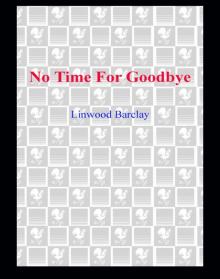 No Time for Goodbye
No Time for Goodbye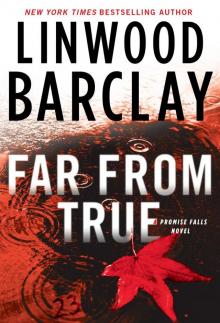 Far From True
Far From True Lone Wolf
Lone Wolf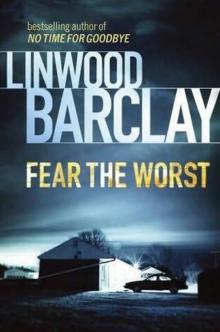 Fear the Worst
Fear the Worst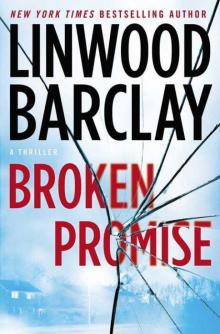 Broken Promise
Broken Promise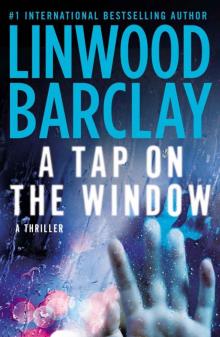 A Tap on the Window
A Tap on the Window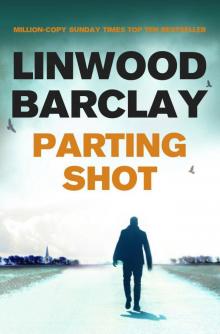 Parting Shot
Parting Shot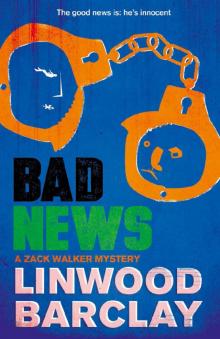 Bad News
Bad News Too Close to Home
Too Close to Home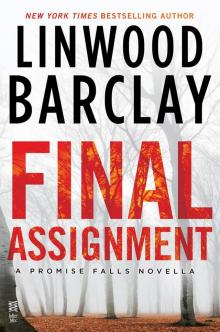 Final Assignment
Final Assignment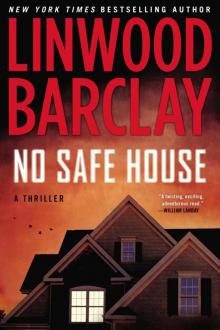 No Safe House
No Safe House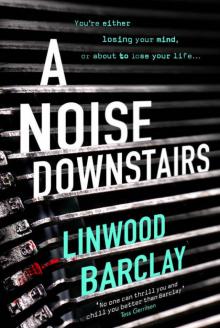 A Noise Downstairs
A Noise Downstairs Bad Guys
Bad Guys The Accident
The Accident Stone Rain
Stone Rain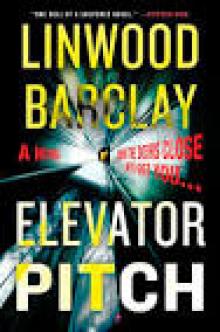 Elevator Pitch
Elevator Pitch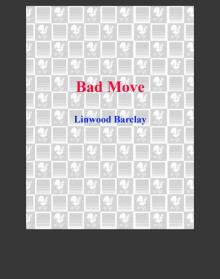 Bad Move
Bad Move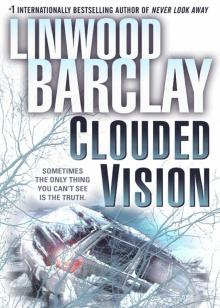 Clouded Vision
Clouded Vision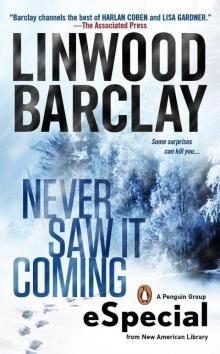 Never Saw It Coming
Never Saw It Coming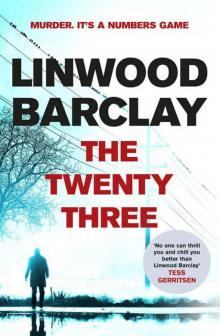 The Twenty-Three
The Twenty-Three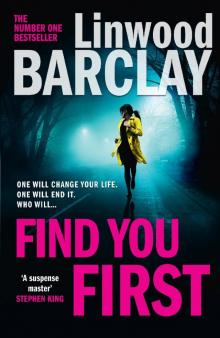 Find You First
Find You First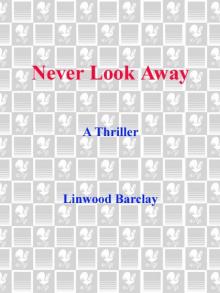 Never Look Away
Never Look Away Elevator Pitch (UK)
Elevator Pitch (UK)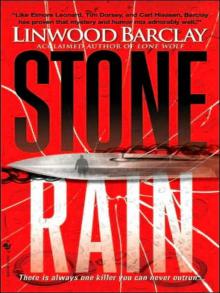 Stone Rain zw-4
Stone Rain zw-4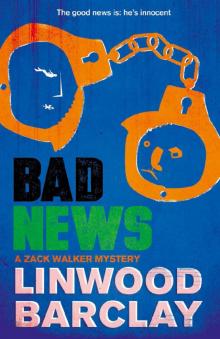 Bad News: A Zack Walker Mystery #4
Bad News: A Zack Walker Mystery #4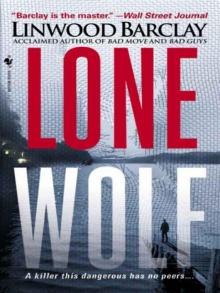 Lone Wolf zw-3
Lone Wolf zw-3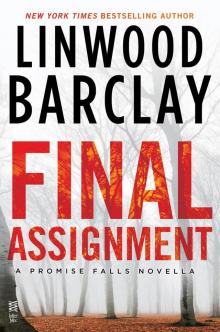 Final Assignment: A Promise Falls Novella
Final Assignment: A Promise Falls Novella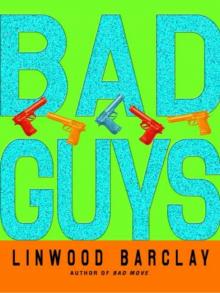 Bad Guys zw-2
Bad Guys zw-2 Never Saw It Coming: (An eSpecial from New American Library)
Never Saw It Coming: (An eSpecial from New American Library)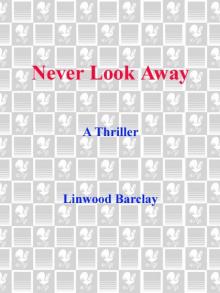 Never Look Away: A Thriller
Never Look Away: A Thriller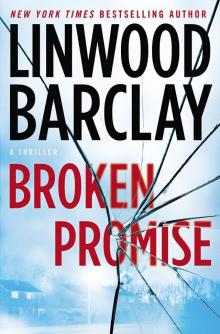 Broken Promise: A Thriller
Broken Promise: A Thriller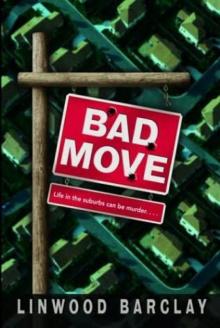 Bad Move zw-1
Bad Move zw-1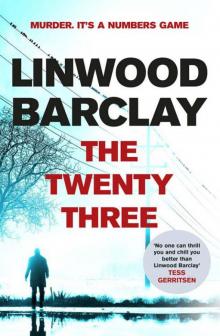 The Twenty-Three 3 (Promise Falls)
The Twenty-Three 3 (Promise Falls)